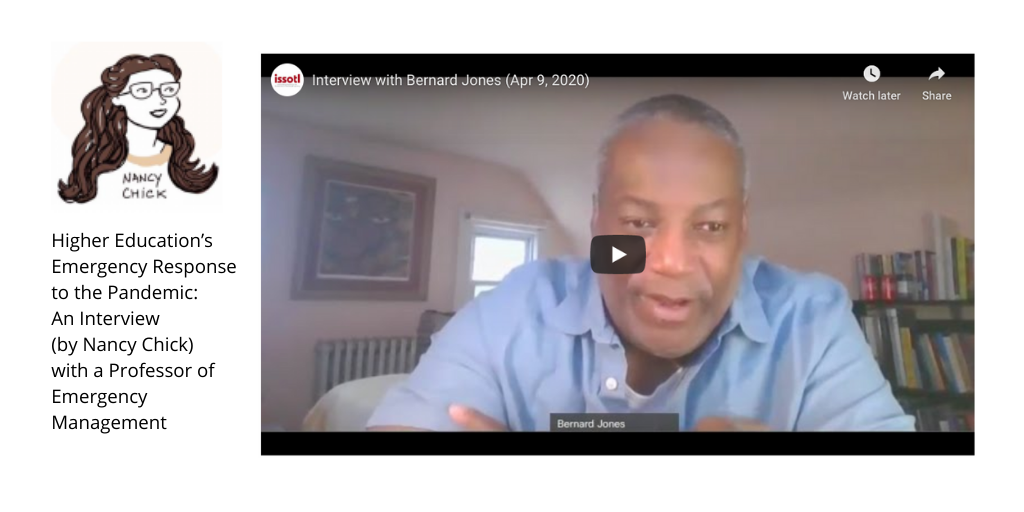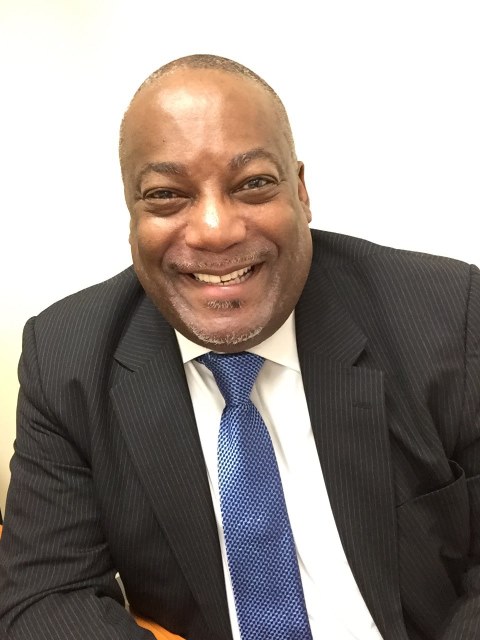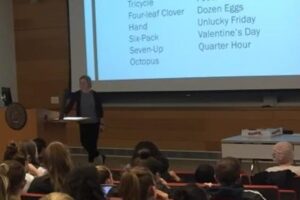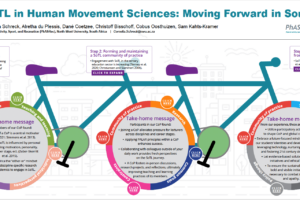
Higher Education’s Emergency Response to the Pandemic: An Interview with a Professor of Emergency Management
The world is talking about what’s happening in postsecondary education as a result of the COVID-19 pandemic. All too often, it’s imprecisely described as “a shift to online teaching.” In fact, what’s really happened is that we had no choice but to quickly move to “emergency remote teaching,” which is a “temporary shift” in the learning environment “due to crisis circumstances” (Hodges, Moore, Lockee, Trust, & Bond, 2020). What teaching faculty and staff are doing is “pedagogical triage” (Chick, Friberg, & Bessette, 2020). And what students are doing is … at the very least surviving, we hope.
A SoTL perspective is deeply concerned with what’s going on with students right now. How are they experiencing learning in the context of the extraordinary cognitive, emotional, physical, socioeconomic, familial, political, geographical, racial, interpersonal, and historical uniqueness of this moment? A SoTL perspective is also deeply concerned with what’s going on with teaching faculty and staff right now. How are we experiencing teaching in the context of the extraordinary cognitive, emotional, physical, socioeconomic, familial, political, geographical, racial, interpersonal, and historical uniqueness of this moment? And how are students and their teachers experiencing each other?
Because what’s happening for all of us right now is an emergency response, I spoke with Dr. Bernard Jones, a professor of emergency management at St. John’s University in Queens, New York (USA).* The interview ranged from his advice for university teachers and administrators, observations from his own classes, and reflections on how his field of emergency or crisis management may frame our thinking about this historical moment in higher education.
His perspective is at the organizational level, so as he shares his insights, think about higher education in general, your specific campus, and each of your classes as an organization.
As you watch the interview, think about what questions about teaching and learning emerge from his insights. How does his interview open up new SoTL inquiries to help us understand this moment?
Glossary
Dr. Jones references three specific crises in the United States:
— The 1982 tampering/poisoning of bottles of the pain reliever Tylenol
— Hurricane Katrina, which devastated New Orleans, Louisiana (and beyond) in 2005
— Hurricane Sandy, which in 2012 hit the densely populated New York/New Jersey area

* Dr. Bernard Jones, CBCP, is an Assistant Professor at St. John’s University (New York, USA) where he teaches undergraduate and doctorate courses in homeland security, emergency management, and business continuity. He also has more than 20 years of experience in reviewing and implementing enterprise business continuity, disaster recovery, and emergency management programs. His current research focuses on organizational resilience, business continuity metrics, data visualization, racial and ethnic disparities in disaster preparedness and response, and emotional intelligence in emergency management. Dr. Jones has become all too familiar with the impacts of disasters on organizations, and continues to assist organizations in increasing their resilience and disaster preparedness.
Tag:pandemic




